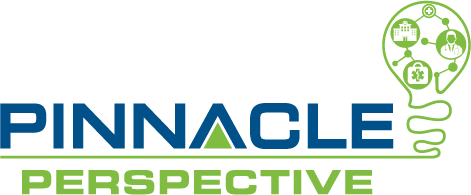
The 2024 Medicare Physician Fee Schedule Final Rule is packed with changes that will impact physician’s revenue. In this article, we provide an overview of some of those changes. Look for more detailed articles regarding these topics in our upcoming 4-part series.
- The Centers for Medicare and Medicaid Services (“CMS”) reduced the conversion factor (“CV”) by 3.4%.
- 2023 CV factor was $33.89.
- 2024 CV factor will be $32.74.
- The American Medical Association (“AMA”) added new codes for caregiver training.
| CPT Code | Description | Time |
| 96202 | Multiple-family group behavior management/modification training for parent(s)/guardian(s)/caregiver(s) of patients with a mental or physical health diagnosis, administered by physician or other qualified health care professional (without the patient present), face-to-face with multiple sets of parent(s)/guardian(s)/caregiver(s); initial 60 minutes | 60 mins |
| 96203 | Multiple-family group behavior management/modification training for parent(s)/guardian(s)/caregiver(s) of patients with a mental or physical health diagnosis, administered by physician or other qualified health care professional (without the patient present), face-to-face with multiple sets of parent(s)/guardian(s)/caregiver(s); each additional 15 minutes | Each additional 15 mins |
| 97550 | Caregiver training in strategies and techniques to facilitate the patient’s functional performance in the home or community (e.g., activities of daily living [ADLs], instrumental ADLs [iADLs], transfers, mobility, communication, swallowing, feeding, problem solving, safety practices) (without the patient present), face to face; initial 30 minutes | 30 mins |
| 97551 | Caregiver training in strategies and techniques to facilitate the patient’s functional performance in the home or community (e.g., activities of daily living [ADLs], instrumental ADLs [iADLs], transfers, mobility, communication, swallowing, feeding, problem solving, safety practices) (without the patient present), face to face; each additional 15 minutes (List separately in addition to code for primary service) | Each additional 15 mins |
| 97552 | Group caregiver training in strategies and techniques to facilitate the patient’s functional performance in the home or community (e.g., activities of daily living [ADLs], instrumental ADLs [iADLs], transfers, mobility, communication, swallowing, feeding, problem solving, safety practices) (without the patient present), face to face with multiple sets of caregivers. | No time |
- CMS added a new HCPCS code (G0136) for a Social Determinants of Health (“SDOH”) Assessment.
- Providers should use any standardized, evidence based, SDOH assessment tool that has been assessed and validated through research and includes the domains of food insecurity, housing insecurity, transportation needs, and utility difficulties.
| HCPCS Code | Description | Time | Telehealth |
| G0136 | Administration of a standardized, evidence-based social determinants of health risk assessment tool, 5-15 minutes | 5-15 Minutes | Yes – permanently on the telehealth list. |
- CMS designated HCPCS code G2211 Visit complexity inherent to evaluation and management associated with medical care services that serve as the continuing focal point for all needed health care services and / or with medical care services that are part of ongoing care related to a patient’s single, serious condition or a complex condition. (add-on code, list separately in addition to office/outpatient evaluation and management visit, new or established) as an active / payable code.
- It is an add on code.
- It must be reported with outpatient office E/M codes.
- Should not be reported at the same time as an E/M with modifier 25.
- Specific documentation requirements apply. Check your payer guidelines!
- For split / shared services, CMS decided to allow either time or medical decision making (“MDM”) to be used to determine which provider documented the “substantiative portion” of a visit.
- CMS updated telehealth services, as follows:
- Added health and wellbeing coaching services to the telehealth list.
- Added SDOH assessment code G0136 to the telehealth list on a permanent basis.
- Revised the definition of originating site to include any location where the patient is located at the time of the service.
- Expanded the list of telehealth providers to include occupational therapists, physical therapists, speech therapists, and audiologists.
- Authorized to continue paying for telehealth furnished by rural health clinics (“RHC”) and federally qualified health centers (“FQHC”) using the methodology established during the COVID19 Public Health Emergency (“PHE”).
- Allowed for payment of telehealth services provided to patients in their home at the non-facility rate.
- Extended their temporary definition of direct supervision (which currently allows the presence and immediate availability of the supervising practitioner through real time audio and video interactive communication) to continue through 12/31/2024.
- Extended the flexibility that allowed teaching physicians to use audio/video real time communications to be present when the resident furnishes Medicare telehealth services in all residency training locations through the end of CY 2024.
- CMS will pay an additional fee for certain vaccines when they are given in a patient’s home. These vaccines are:
- COVID19
- Influenza
- Pneumococcal
- Hepatitis B
- CMS made great strides toward improving behavioral health services. Here are a few of those changes:
- They will now pay for the services of marriage counselors, family counselors, mental health counselors and addiction counselors.
- They will allow CPT codes 96156, 96158, 96159, 96164, 96165, 96167, and 96168, and any successor codes, to be billed by clinical social workers, marriage, and family therapists (“MFT”), and mental health counselors (“MHC”), in addition to clinical psychologists.
- They have delayed the requirement for a face-to-face visit within six months prior to initiating a mental health telehealth service.
As you can see, there is much to unpack in this year’s final rule. Be on the lookout for the next article in our series where we will take a deeper dive into one of the changes mentioned above.
Keeping up with the changes in the Final Rule can be exhausting. PERCS is here to assist you in navigating the guidelines to remain compliant. If you have any questions or need assistance, please contact Angie Wood, Senior Auditor/Educator at AWood@AskPHC.com.
References: